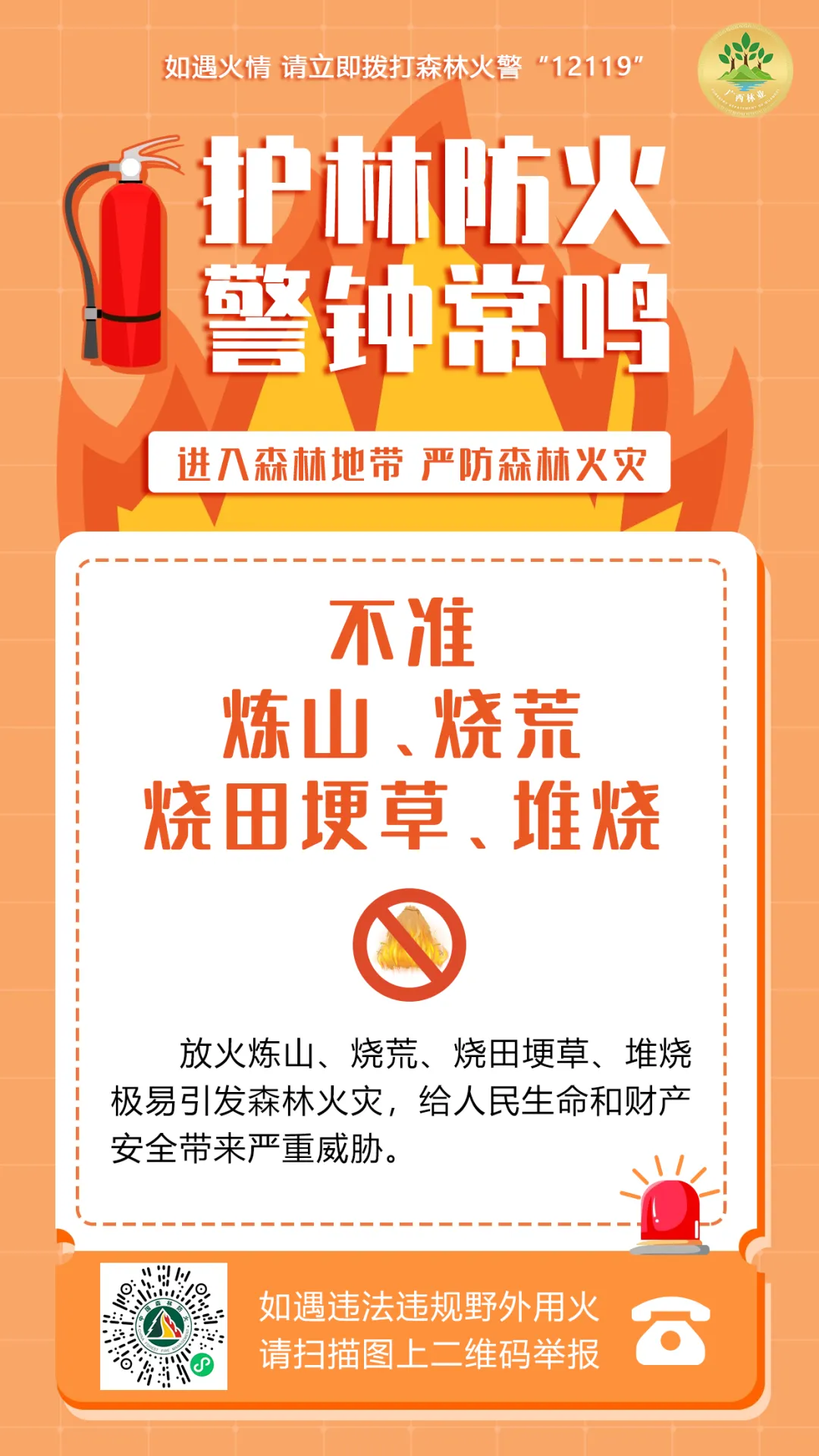01
Maintain Early Sleep and Rise Early

1) Benefits of Early Sleep:
1. Beneficial for the Heart: Staying up late actually tortures your body, leading to increased blood pressure and cholesterol, which pose health risks to your heart. If you want to avoid worsening conditions, make sure to get a good night’s sleep.
2. Reduces Stress: A stable sleep at night helps release the physical and mental stress accumulated during the day, allowing your body and mind to relax. Insufficient sleep can lead to heart attacks or other diseases.
3. Improves Memory: Going to bed early helps you organize your thoughts well, and after waking up early, your mind will be clearer.
4. Prevents Illness: Staying up late only raises your blood pressure and cholesterol, adding stress to your body. Such a lifestyle can increase your risk of cancer or other heart diseases. Therefore, going to bed early helps keep your blood pressure at normal levels.
5. Time for Breakfast: Breakfast is crucial for starting the day, but often we skip it due to waking up late. To have breakfast, you need to wake up early (early sleep leads to early rising), and finishing breakfast before 10 AM is very important.
6. Encourages Optimistic Actions: A continuous sleep of 7 hours at night is essential. Insufficient sleep can lead to a decline in creative thinking, forcing you to struggle with stress and attention, all of which negatively impact your behavior.
7. Aids Metabolism: Our body needs to expel toxins we do not need, and sleeping too late can affect this detoxification process. We need to eat and sleep on time to maintain our energy.
8. Reduces Cancer Risk:Ensure to sleep in darkness. Sleeping with light at night reduces melatonin levels, while melatonin promotes sleep and helps reduce cancer risk. Therefore, ensure your room is dark and go to bed early to promote melatonin production.
9. Conserves Energy: Early sleep allows for more restful sleep, making you more energetic in the morning. This leads to better performance and a flexible mind that aids concentration.
10. Maintains Body Shape: Staying up too late can disrupt your body. Sleeping less than 7 hours a day can lead to obesity. Hormones produced due to insufficient sleep can affect appetite, leading to significant weight gain.
2) Benefits of Rising Early:
1. More Energy: Sticking to an early sleep and rise routine allows the body to detoxify and rest at night, making you naturally energetic and vibrant the next day. Long-term adherence will make you glow.
2. No More Dark Circles: The body cannot withstand late nights. If you consistently sleep early and rise early, your detoxification will be smooth, metabolism will be fast, and your liver and heart will be healthy, leading to overall wellness and the disappearance of dark circles.
3. Increased Morning Efficiency: While “night owls” are still waking up, early risers may have already completed their morning run, prepared breakfast, and handled a lot of tasks. For more challenging activities of the day, early risers are more likely to plan and implement them promptly. Additionally, the human body is most agile between 7-11 AM, while the brain reaches its peak about 4-5 hours after waking. To perform well in the morning, the effective method is to wake up an hour earlier.
4. Weight Loss Benefits: Those who often stay up late and do not rise early suffer from severe endocrine disorders. If you want to lose weight, not only will you fail, but you may also gain weight!
5. More Serious Work Attitude: Various personality studies have found that responsible individuals are more efficient, organized, goal-oriented, and detail-focused. Some studies show that early risers have clearer minds, plan ahead, and act more decisively.
6. Effectively Relieves Anxiety: With more time, life becomes fuller, leaving no extra time for anxiety.
02
Reasonable Meal Arrangement
 The purpose of eating is to intake food that maintains the normal physiological functions of the body, meeting the needs for growth, brain enhancement, and disease prevention. To achieve this, it is crucial to arrange three meals a day properly.
The purpose of eating is to intake food that maintains the normal physiological functions of the body, meeting the needs for growth, brain enhancement, and disease prevention. To achieve this, it is crucial to arrange three meals a day properly.
1. Breakfast should be substantial: The morning is the start of the day, and after a night of rest, the food in the body has been digested and absorbed. The morning is when our thoughts are most active and physical energy consumption is highest, so breakfast should be substantial, with high-calorie and high-protein foods, accounting for 30%-40% of the total daily intake.
2. Lunch should be filling: Lunch is the most important meal of the day. After a half-day of “combat,” physical energy is depleted, and we need a lot of energy to continue learning and working in the afternoon, so lunch should be filling, accounting for 40%-50% of the total daily intake.
3. Dinner should be light: After dinner, physical activity decreases significantly. Eating too much can harm the body, so dinner should be light, accounting for 20%-30% of the total daily intake.
03
Pay Attention to Dietary Structure
 In the past decade, chronic non-communicable diseases such as hypertension, diabetes, and obesity have become major health issues affecting the Chinese population, and dietary nutrition plays a significant role in the onset and progression of these chronic diseases. How can we adjust our dietary structure to prevent and treat these chronic diseases?
In the past decade, chronic non-communicable diseases such as hypertension, diabetes, and obesity have become major health issues affecting the Chinese population, and dietary nutrition plays a significant role in the onset and progression of these chronic diseases. How can we adjust our dietary structure to prevent and treat these chronic diseases?
1. Diverse Foods, Grains as the Main: Except for breast milk, no single natural food can provide all the nutrients needed by the human body. We should consume a variety of foods to complement each other, achieving reasonable nutrition and promoting health. The various foods should include five major categories: grains and tubers, animal products, legumes and their products, vegetables and fruits, and pure energy foods.
2. Eat More Vegetables, Fruits, and Tubers: Vegetables, fruits, and tubers play a crucial role in maintaining cardiovascular health, enhancing disease resistance, and preventing certain cancers. Choose deep-colored options like red, yellow, and green, but fruits cannot completely replace vegetables.
3. Regularly Consume Dairy, Legumes, or Their Products:Dairy is an excellent source of natural calcium, not only high in content but also with high absorption rates. Adequate calcium in the diet can improve bone density in children and adolescents, delaying the onset of osteoporosis; it can also slow down bone loss in middle-aged and elderly individuals. Legumes are rich in high-quality protein, unsaturated fatty acids, calcium, vitamins, and phytochemicals.
4. Regularly Eat Appropriate Amounts of Fish, Poultry, Eggs, and Lean Meat, and Limit Fatty Meat and Animal Fats: Excessive intake of fatty meat and animal fats is a risk factor for obesity and hyperlipidemia. Pork is the main meat consumed in China, but its fat content is much higher than that of chicken, fish, rabbit, and beef, so we should reduce the proportion of pork and increase the intake of poultry.
5. Balance Food Intake with Physical Activity to Maintain an Appropriate Weight: Therefore, it is essential to ensure a balance between energy intake and expenditure to maintain an appropriate weight.
6. Eat Light and Low-Salt Meals: Meals should not be too oily or salty. The daily cooking oil intake for normal adults should not exceed 25 grams (half a tael), and salt should be limited to 6 grams.
04
Scientific Dietary Structure
 The so-called balanced diet refers to a diet that contains a complete variety of nutrients, sufficient quantities, and appropriate proportions, including: amino acid balance, caloric nutrient balance, acid-base balance, and balance among various nutrient intakes, which is conducive to the absorption and utilization of nutrients.
The so-called balanced diet refers to a diet that contains a complete variety of nutrients, sufficient quantities, and appropriate proportions, including: amino acid balance, caloric nutrient balance, acid-base balance, and balance among various nutrient intakes, which is conducive to the absorption and utilization of nutrients.
In daily life, people categorize essential foods into five categories.
1. Grain Foods: These are the main source of calories. Generally, for light physical laborers, the daily intake should be 300-500 grams, with the remaining calories supplied by supplementary foods, so grain foods should account for 60%-70% of energy supply, approximately 32% of total dietary intake.
2. Foods Rich in Animal Protein: This includes lean meat, eggs, poultry, fish, etc. Adults should consume 70-100 grams of protein daily. Studies show that the absorption rate of animal protein is higher than that of plant protein. An ideal protein intake should consist of 1/4 from animal protein, 1/4 from legume protein, and the remaining 2/4 from grains. Therefore, nutrition experts recommend that each person should consume 50-100 grams of poultry and livestock meat, 50 grams of fish and shrimp, and 25-50 grams of eggs daily. This type of food should account for 13% of total dietary intake.
3. Legumes, Dairy, and Their Products: Legumes are rich in protein, unsaturated fatty acids, and lecithin, and their amino acid composition is close to human needs. Therefore, each person should supplement 50 grams of legumes and 100 grams of dairy daily, which should account for 9.5% of total intake.
4. Vegetables and Fruits: These are the main sources of vitamins, inorganic salts, and dietary fiber. However, due to the wide variety of vegetables, their nutritional components vary significantly. For example, leafy vegetables are rich in carotene, ascorbic acid, and inorganic salts like calcium and phosphorus; root vegetables are rich in starch, protein, and carotene; fresh bean vegetables contain carbohydrates, iron, and thiamine that other vegetables cannot match. Therefore, each person should consume 400-500 grams daily, with more than half being green leafy vegetables. Fresh fruits are a good source of ascorbic acid and can provide a lot of protein, phosphorus, iron, and other inorganic salts, so each person should consume 100-200 grams of fresh fruit daily. This type of food should account for 40% of total intake.
5. Fats:Fats provide calories, promote the absorption of fat-soluble vitamins, and supply unsaturated fatty acids. Plant oils contain more essential fatty acids than animal fats, while animal fats have more saturated fatty acids and higher melting points, making them harder for the body to digest and absorb. Therefore, it is advisable to eat less animal fat and more plant oil. Nutritionists recommend that the intake ratio of saturated fatty acids to polyunsaturated and monounsaturated fatty acids should each be 1/3. Fats should be consumed at a rate of 1 gram per kilogram of body weight daily, accounting for about 1.5% of total dietary intake.
In summary, long-term deficiency of any of the above five food categories will affect health. To maintain a balanced diet, people should not eat overly refined foods daily, nor should they binge during holidays. Achieving a combination of coarse and fine foods, with both animal and plant sources, will ensure better health.
05
Maintain Regular Physical Exercise

1. Exercise can develop muscles, strengthen bones, and enhance joint flexibility. Regular exercise can improve bone metabolism, making bones stronger. Conversely, those who lack exercise, especially the elderly, are at risk of osteoporosis, leading to brittle bones and fractures.
2. Exercise can enhance cardiovascular function. Individuals who engage in long-term physical exercise have stronger heart contractions, which can enlarge the diameter of coronary arteries supplying heart tissue and increase the number of capillaries in the tissue.
3. Exercise can enhance lung function, especially for athletes who regularly participate in endurance sports like long-distance running, rowing, or swimming, showing significant increases in lung capacity.
4. Exercise promotes metabolism within the body, allowing for better utilization of energy substances and oxygen, which helps conserve energy and reduce the burden on the cardiovascular system.
5. Exercise can also regulate the excitation and inhibition processes of the central nervous system, leading to a balanced activity, flexible responses, and better adaptation to changes in the external environment.
6.Exercise can enhance immunity, improving disease resistance.
7. In addition to benefiting physiological functions, exercise also has positive effects on mental health.
8.Appropriate exercise can relieve mental stress, helping to eliminate negative behaviors associated with psychological tension, such as smoking, excessive drinking, and overeating.
9.Exercise can combat anxiety or depression, improving sleep. In this regard, the effects of moderate exercise can even surpass those of medication.
10. Exercise also helps cultivate resilience, a fearless spirit, and a fighting spirit, forming a good psychological quality.
06
Maintain a Cheerful Mood

Research shows that many physical diseases are closely related to psychological factors. Negative emotions are a major culprit in causing illness. An American physiologist designed a simple experiment to study the impact of psychological states on health by inserting glass test tubes into ice water and collecting “soda” from people in different emotional states. The results showed that when a person is calm, the exhaled gas dissolves in water and is clear; when sad, the water has a white precipitate; when angry, it has a purple precipitate.
Modern medicine has proven that prolonged tension, anxiety, anger, and depression can lead to increased blood pressure; coronary heart disease is associated with Type A behavior; and peptic ulcers are related to tension and repression. Long-term negative emotions can affect the normal functioning of lymphocytes and T-cells, failing to monitor mutated undifferentiated cells in time, leading to cancer.
1. A cheerful mood can make a person quick-witted, physically energetic, and mentally vigorous, which is conducive to correctly understanding, analyzing, and solving problems, allowing one to perform normally or even exceed expectations.
2. A cheerful mood can keep various systems in the body balanced, enhancing immunity.
Practical evidence shows that long-term negative emotions can alter physiological conditions, leading to the onset of diseases and adversely affecting physical and mental health.
07
Master Daily Health Knowledge

1. Maintain Good Posture: As the saying goes, “Stand like a pine, sit like a bell, walk like the wind.” This means standing should be upright, sitting should be proper, and walking should be swift and strong, which is crucial for maintaining correct posture, especially for children and adolescents, to ensure normal growth and development.
2. Sleep in a Comfortable Position: Previously, people believed that sleeping on the left side would compress the heart, and sleeping on the stomach would hinder breathing, etc. In reality, the heart and lungs are protected by the rib cage and thick muscles, and sleeping position does not affect them. Of course, saying that sleeping on the back is the best is also unfounded. Therefore, any position that feels comfortable and allows for deep sleep is the best sleeping position, except for children.
3.Exercise for 5 Minutes Daily: If the effect of daily exercise is considered 100%, then exercising every other day is 85%, every three days is 50%, and every two weeks is equivalent to not exercising at all. Therefore, even if it’s just 5 minutes of calisthenics or light exercise daily, it is effective. The key is consistency.
4.Walk at a Fast Pace: Walking is a beneficial exercise, but it only works effectively at a pace close to jogging. When commuting or shopping, try to speed up and overtake those in front of you, saving time while exercising your body.
5.Active Rest Methods: When feeling tired after working for a while, instead of resting your right hand, try gently moving your left hand. This method is most effective for relieving fatigue. According to scientists, stimulating the brain cortex controlling the left hand can inhibit the cortex controlling the right hand, thus eliminating fatigue and restoring energy.
6. “Multitasking” is Inefficient: Some people listen to the radio or wear headphones while studying. From a physiological perspective, the brain cannot engage in highly concentrated thinking activities with external stimuli and light. Playing soft music on construction sites to improve efficiency is only effective for simple manual tasks.
7.Overeating Causes Obesity: Eating an extra 100 calories daily can lead to approximately 11 grams of fat accumulation in the body. If this continues for a year, a person can gain about 4 kilograms. Just 100 calories of food is about half a bowl of rice or a large spoonful of cheese. Overweight individuals should reflect on whether they are consistently overeating. Therefore, weight loss must involve dietary control. There is a misconception that overweight individuals can lose weight just by exercising, citing athletes who increase their exercise before competitions to lose weight. In reality, athletes can only succeed in weight loss when they strictly control their diet while exercising. Rather than saying exercise is for weight loss, it is more accurate to say it is for enhancing physical fitness.
8.Avoid Spoiled Food: Many believe that to prevent food poisoning, simply cooking or boiling food is sufficient. In fact, food poisoning is not caused by bacteria themselves but by the toxins produced by these bacteria, which do not disappear even after boiling. Therefore, leftover and spoiled food should be discarded.
9.Avoid Bad Habits: Smoking, excessive drinking, a preference for sweets, and overeating spicy foods are recognized by medical professionals as health killers and should be avoided as much as possible.
10.Best Handwashing Method: During outbreaks of infectious diseases, people often remind each other to wash hands frequently. However, simply washing hands carelessly does not remove bacteria, especially if some do not use soap or hand sanitizer, which is ineffective for cleaning and disinfecting. The best method is to wash hands under running water for at least one minute using boiled soapy water; otherwise, handwashing is meaningless. It is essential to recognize that general hygiene handwashing and handwashing to prevent infectious diseases are entirely different in nature.
How about it? Quickly share and save!
Follow the official account of Jinri Guanyang: jinriguanyangThe submission email is: [email protected]





